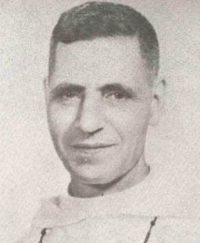Contrary to rumors, there was no military parade to celebrate the Emperor’s birthday. Nor was there any display of military power. In fact, as a matter of Japanese tradition, the Emperor’s name was not officially mentioned.
The rumors, however, were well-founded. As a matter of fact, a member of the Committee on Festivities told me that a parade was considered, but the idea was abandoned, due perhaps to the public attitude.
The day’s solemnities were limited to a couple of banquets at the Manila Hotel and a reception at Malacañan, given by General Homma (they finally disclosed the name of the Commander-in-Chief of the Imperial Forces) in honor of the Japanese-Filipino officialdom.
There was a sufficient display of Japanese flags. There was no official pressure, but somehow, they managed to threaten the Filipinos. Word spread that anyone caught without the Japanese flag would be punished. This was enough to make people display them in their houses, calesas, and bicycles. Most people stayed at home for safety’s sake.
Here is a typical sight: a woman was walking, carrying the flag dangling from her hands. When she saw two Japanese approaching, she raised it, and after passing the soldiers, she put the flag down again.
This is symbolic of the people’s attitude towards the new regime. There is no acclaim. Those who accept it do so out of fear. They never believe the slogans mouthed by the conquerors.
Some people sense a certain changes in the posture of the Japanese army since the fall of Bataan. There is less violence. The military police has disappeared from the city and it seems that the custody of peace and order has been left to the Filipino police. Soldiers move about freely among the people. They do not molest anyone, nor are they molested. It’s either that they cannot understand the people or they are not understood. Certainly it is obvious that the people are avoiding them.
They invade the stores, indulging in a buying spree of all sorts of jewelry and novelties. They are particularly fond of wrist watches, wearing them by the dozens at one time. They enjoy merry-making, and although the soldiers do not commit abuses, they give themselves to immoral excesses.
